News & Media
Of racecraft, witches, and the National Question: The decoding of Neville Alexander et al
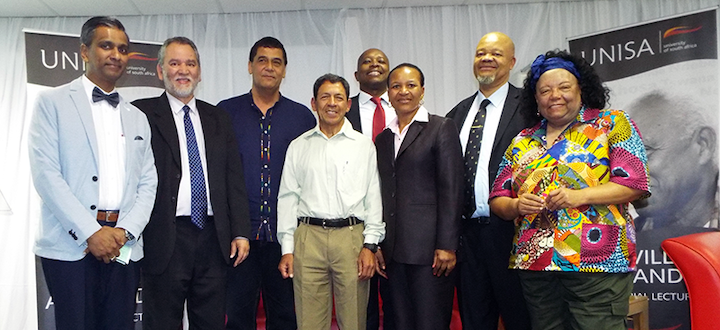
Dr Faroon Goolam (Registrar, Unisa), Dr Keith Jacobs (Regional Director: Unisa Western Cape), Allan Zinn (Director: Centre for the Advancement of Non-Racialism and Democracy, NMU, and keynote speaker), Prof. Eugene Cairncross (Emeritus Professor: Chemical Engineering, UCT, and respondent), Dr Sibusiso Chalufu (Dean of Students, Unisa), Poppie Tshabalala (VP: ICT/CIO, Unisa), Prof. Mandla Makhanya (Principal and Vice-Chancellor, Unisa), and Diana Ferrus (writer, poet, and storyteller)
‘Almost a quarter-century into post-apartheid South Africa, the vexed question of ‘what constitutes the nation?’ continues to occupy us. While we have moved beyond the notion of ‘separate nation states’ as in the old National Party formula for dividing-and-ruling the country, we cannot seem to get beyond the four-race concept of black-coloured-Indian-white (albeit within a single South Africa state).
It is upon this abstract that the sixth Neville Alexander Memorial Lecture was premised, and delivered in a simple, yet intellectually powerful way by Allan Zinn, Director at the Centre for the Advancement of Non-Racialism and Democracy at the Nelson Mandela University. Hosted by the Western Cape Region of Unisa, the sixth memorial lecture was held under the theme: ‘The ongoing struggle for resolution of the National Question : Transcending the iron-grip of race in our national consciousness’.
The point of departure for Zinn’s lecture was an apt reference to Neville Alexander’s book, Thoughts on the new South Africa (2013), in which Alexander argues ‘although science has proven that ‘race’ in human biology has no basis in fact, this does not necessarily mean an end to racial prejudice, race-thinking or the phenomenon of racism in general’.
He also referred to another assertion by Alexander, arguing that ‘the fact that a very large number of human beings believe in ghosts doesn’t make ghosts real, just as belief that the sun revolves around the earth does not make this true, either (No Sizwe, 1979).
In a 2015 interview, renowned scholars Barbara and Karen Fields likened belief in race to belief in witches. They argued that neither race nor witches have a biological basis, but ‘when racial practices are repeated widely and persevere for decades and centuries, then racist practice produces a general belief in race’. They referred to this phenomenon as racecraft.
Zinn also made reference to philosopher Pierre-André Taguieff, who argued that racism is ‘anchored in the human unconscious’. Taguieff argued that there are five forms of ‘rejection of out-groups’, which are as follows:
- Verbal rejection—Involving hostility manifested by insults or jokes which express antagonism.
- Avoidance—This means simply withdrawing from any interaction with the disliked group or individual.
- Discrimination—To refuse to accord a person or a group of persons, for reasons of their ethnic background, treatment equal to that given the dominant group’s.
- Physical attack/violence—Against persons and/or their belongings, exercised on ethnic grounds (including xenophobia).
- Extermination—Including lynchings, pogroms, massacres and the Hitlerian programme of genocide.
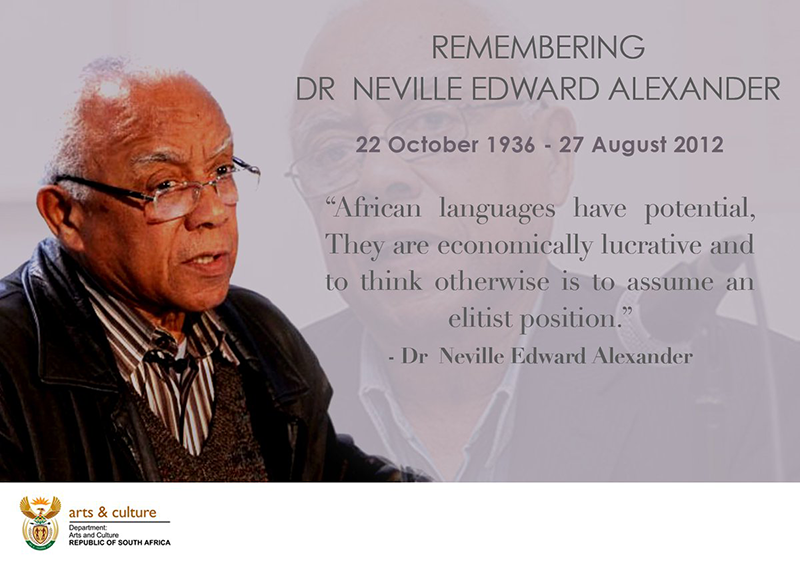
Zinn also sought to reflect on the colonial roots of South Africa, referring from David Harvey, who wrote in his book, The enigma of capital, that ‘capital accumulation in South Africa started off as a process of accumulation by dispossession’. According to Harvey, war, violence, predation, thievery, criminality and fraud were the means by which the indigenous people were dispossessed of their communal lands, and by which the basis to wealth in this country passed into the hands of the capitalists.
Zinn argued that mechanisms such as the Land Acts, poll taxes, the pass laws, the migrant labour system, denial of anything approaching democratic rights, and the semi-proletarianism of the indigenous labour ensured that the mineral wealth of this country could be variably exploited.
He reminded the house of Neville Alexander’s assertion in his Thoughts on the new South Africa (2013) that ‘race thinking (that is, white supremacy) became the dominant mode of seeing and describing social relations in South Africa’.
He also emphasised the role played by Bantu education in the continued subjugation of the black majority, quoting from an article by author and academic Linda Naicker, who argued that ‘Bantu education served the interests of white supremacy. It denied black people access to the same educational opportunities and resources enjoyed by white South Africans. Bantu education denigrated black people’s history, culture, and identity. It promoted myths and racial stereotypes in its curricula and textbooks….African people and communities were portrayed as traditional, rural and unchanging. Bantu education treated blacks as perpetual children in need of parental supervision by whites….’.
This, according to Naicker, was further aggravated by how the system of racial discrimination was even given credence by religious sanction. The position adopted by the Federale Raad van Kerke (FRK) in the 1940s is a case in point, which cited the biblical books of Genesis and Acts as theological bases for supporting apartheid. The position postulated that ‘The division of the races was a conscious act of God. God divided people according to their colour and originality. Each person belonged to the race where the texture of hair and skin colour matched. God wished to maintain the separateness of people in every aspect of life, be it national, social, political or religious. Apartheid enjoyed the full blessings of God….’
Zinn concluded the lecture by arguing that the political settlement in South Africa in 1994 did nothing to change the pronounced levels of poverty and inequality wrought by the apartheid system of racialist capitalism. 1994, he argued, was not about eliminating poverty and inequality, but about moving away from totalitarian rule towards neo-liberalism.
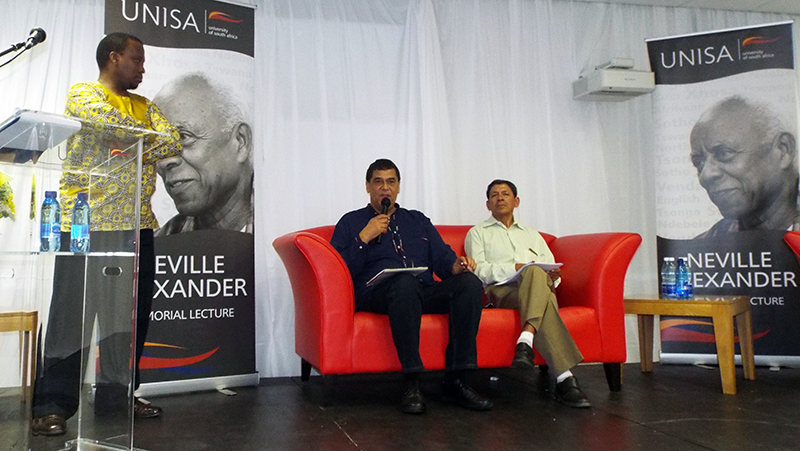
Mdu Ncongwane (Programme Director), Allan Zinn (Director: Centre for the Advancement of Non-Racialism and Democracy, NMU, and keynote speaker), and Prof. Eugene Cairncross (Emeritus Professor: Chemical Engineering, UCT, and respondent)
Mdu Ncongwane (Programme Director), Allan Zinn (Director: Centre for the Advancement of Non-Racialism and Democracy, NMU, and keynote speaker), and Prof. Eugene Cairncross (Emeritus Professor: Chemical Engineering, UCT, and respondent)
He again referred to the words of Neville Alexander in Thoughts of the new South Africa that ‘the demise of apartheid as a political-ideological system with all its attendant rigmarole of Bantustans, ‘bush colleges’, separate schools for separate ‘races’ and ‘nations’, among all its other tragic absurdities, did not lead to the kind of society many of us, including many in the present government, had imagined a post-apartheid South Africa would be…Apartheid capitalism was succeeded by post-apartheid capitalism. There was no revolution; at best what we got was no more than regime change’.
He further argued that racial discrimination, black poverty, and capitalism are all indissolubly linked and, for the country to move out of this racist evil that bedevils our era, the anti-racist struggle has to be joined with the anti-capitalist struggle.
The Principal and Vice-Chancellor, Professor Mandla Makhanya, delivered the welcome and context address prior to the lecture, while Professor Eugene Cairncross, Emeritus Professor of Chemical Engineering at the University of Cape Town, was the respondent. Writer, poet and storyteller, Diana Ferrus rendered two powerful poems themed on identity and the language question. Mdu Ncongwane from the Unisa Western Cape Library directed the programme.
*By Martin Ramotshela
Publish date: 2018-11-01 00:00:00.0


 Unisa co-hosts G20 community outreach in the Eastern Cape
Unisa co-hosts G20 community outreach in the Eastern Cape
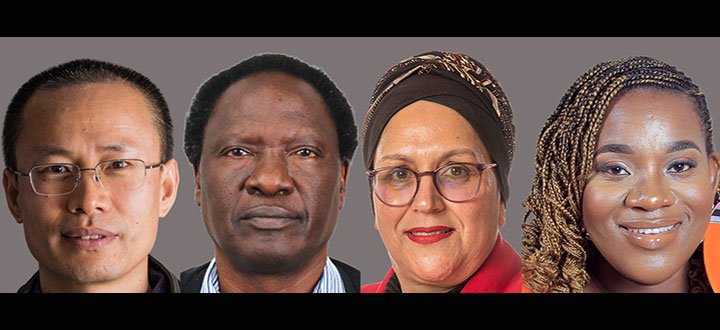 Unisans gain membership of prestigious science academies
Unisans gain membership of prestigious science academies
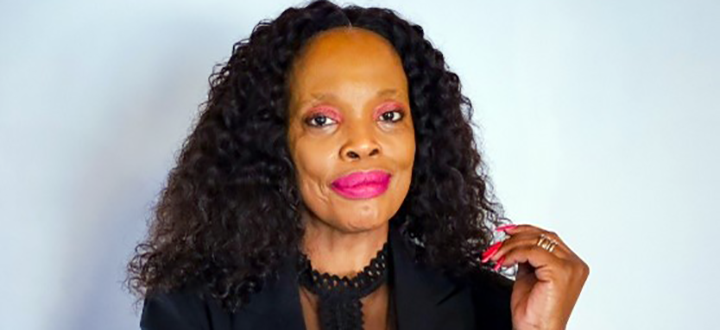 Unisa alumna takes the helm at the SA Library for the Blind
Unisa alumna takes the helm at the SA Library for the Blind
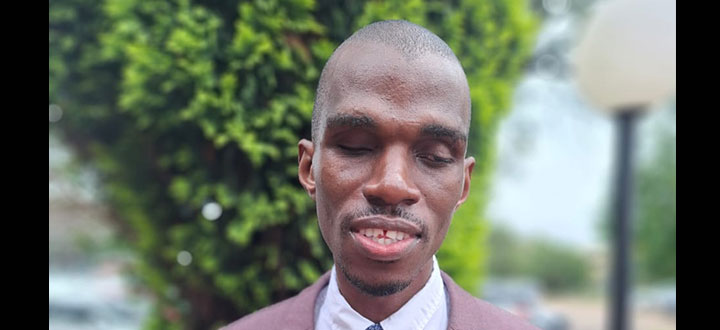 Advocating for disability transformation through servant leadership
Advocating for disability transformation through servant leadership
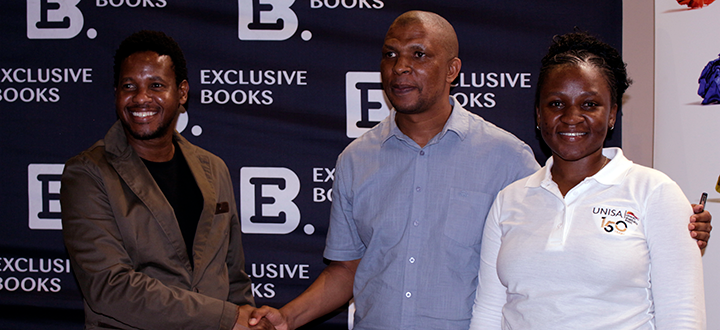 Unisa Press continues to illuminate the publishing space
Unisa Press continues to illuminate the publishing space